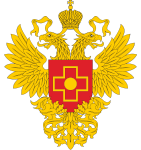
This article is an open access article distributed under the terms and conditions of the Creative Commons Attribution license (CC BY).
REVIEW
Role of heredity, endogenous and exogenous factors in gastric cancer
Centre for Strategic Planning and Management of Biomedical Health Risks of the Federal Medical Biological Agency, Moscow, Russia
Correspondence should be addressed: Pavel V. Ershov
Pogodinskaya, 10, str. 1, Moscow, 119121; ur.xobni@97levap
Author contribution: Ershov PV performed literature search and wrote the draft of the manuscript; Veselovsky EM performed literature search, wrote the Genetic factors for GC risk section and edited the manuscript; Konstantinova YuS performed literature search, proposed the concept of the study and edited the manuscript.
Gastric cancer (GC) usually has an unfavorable prognosis: the five-year survival rate is 20–30% in most world regions. Timely diagnosis and prevention of risk factors may reduce mortality from GC. This review discusses the meta-analyses of 40 endogenous and exogenous factors associated with GC. GC is significantly associated with family history; dietary preferences (increased consumption of roast and smoked red meat, hot foods, pickles, salt (over 5–6 g/day), nitrates (over 20 mg/L drinking water); lifestyle (smoking, opium use, strong alcohol, beer, stress); some diseases including gastroesophageal reflux disease, diabetes mellitus, obesity, and autoimmune disorders; infections (Helicobacter pylori, human papillomavirus, Epstein-Barr virus); ionizing radiation, and professional hazards. Data suggesting associations between the risk of GC and the consumption of coffee, tea, high-fat foods, simple carbohydrates, folic acid, sleep duration, and blood cholesterol turned out to be conflicting due to the inconsistencies of the results between cohort and case-control studies. About 3% of all gastric cancers are linked to hereditary syndromes associated with pathogenic variants of CDH1, STK11, SMAD4, BMPR1A, TP53, MYH, APC, PTEN, ATM, BRCA1, and some other genes.
Keywords: risk factors, polymorphism, gastric cancer, hereditary syndrome, occupational hazards